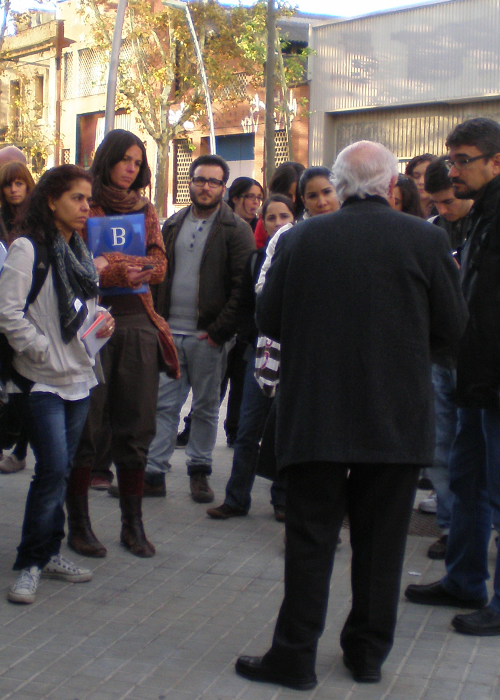LEARNING AND ASSESSMENT METHODOLOGY
The development of the program combines the exhibition, theoretical reflection and debate of the basic contents of the different modules with the presentation and work of practical cases (experiences, investigations, real problems, outings and visits) that allow integrating these contents in the different areas of professional application.
At the same time, methodological resources for research, intervention and management are offered.
- Tutoring of the learning process
- Preparation of an intervention or management preliminary project, depending on the postgraduate course being worked on.
- Preparation of a complete project for the master's degree.
The master’s degree is organized into 75 ECTS credits, of which 20 are dedicated to basic or applied research, professional work and the development of the Final Project.
1 ECTS credit supposes 25 hours of student work, with a variable value in terms of hours of face-to-face teaching, depending on subjects or seminars.
The standard used is 1 credit equivalent to 8.5 hours of face-to-face, theoretical or practical teaching, and the rest dedicated to tutored work, research, reading, study and development of projects by the student. In the case of the most instrumental subjects, the weight of teaching and tutoring hours is reversed. In the case of Research workshops, the maximum weight falls on the student’s work time.
Evaluation
The objective of evaluation is twofold:
Provide the student with the information that allows him to know his progress in the subjects that make up the academic curriculum of the Master.
Assess by the teaching staff if the student is achieving the minimum level established to deserve either a Postgraduate degree or a Master's degree.

To obtain the postgraduate degree, it is necessary to pass all 30 ECTS credits.
All the basic subjects and all the theoretical or applied blocks of the two postgraduate courses that make up the Master’s program, are evaluated individually, regardless of whether they can be carried out in a group. Attendance at training activities (minimum 80% of sessions), participation, intervention in classes, knowledge acquired are taken into account. The various types of tests (pure or combined) include exams, individual assignments and exercises as well as group assignments and exercises (in this case, although the presentation is collective, the resulting evaluation will be individual).
To obtain the Master’s degreer it is necessary to pass a total of 75 ECTS credits.
You must pass the two postgraduate courses, complete the Practicum module + workshops , and present and defend a Final Master’s Project.
Evaluation of the Final Master’s Project: the project required to obtain the Master’s degree is It is carried out, preferably in a team, within the workshops, and is evaluated as a single group work. It is evaluated based on the product itself, not on the time or effort spent. All team members receive the same grade.
The evaluation is carried out by an Interdisciplinary Professional Commission external to the Master, made up of:
- A professional in the technical field.
- A professional in the field of social sciences.
- A representative of the Alumni Association (AMCA) or some other professional association in the environmental field.
In conjunction with
- The Work Tutor.
- The Director of the Master or the person delegated, who will act as notary of the commission.


